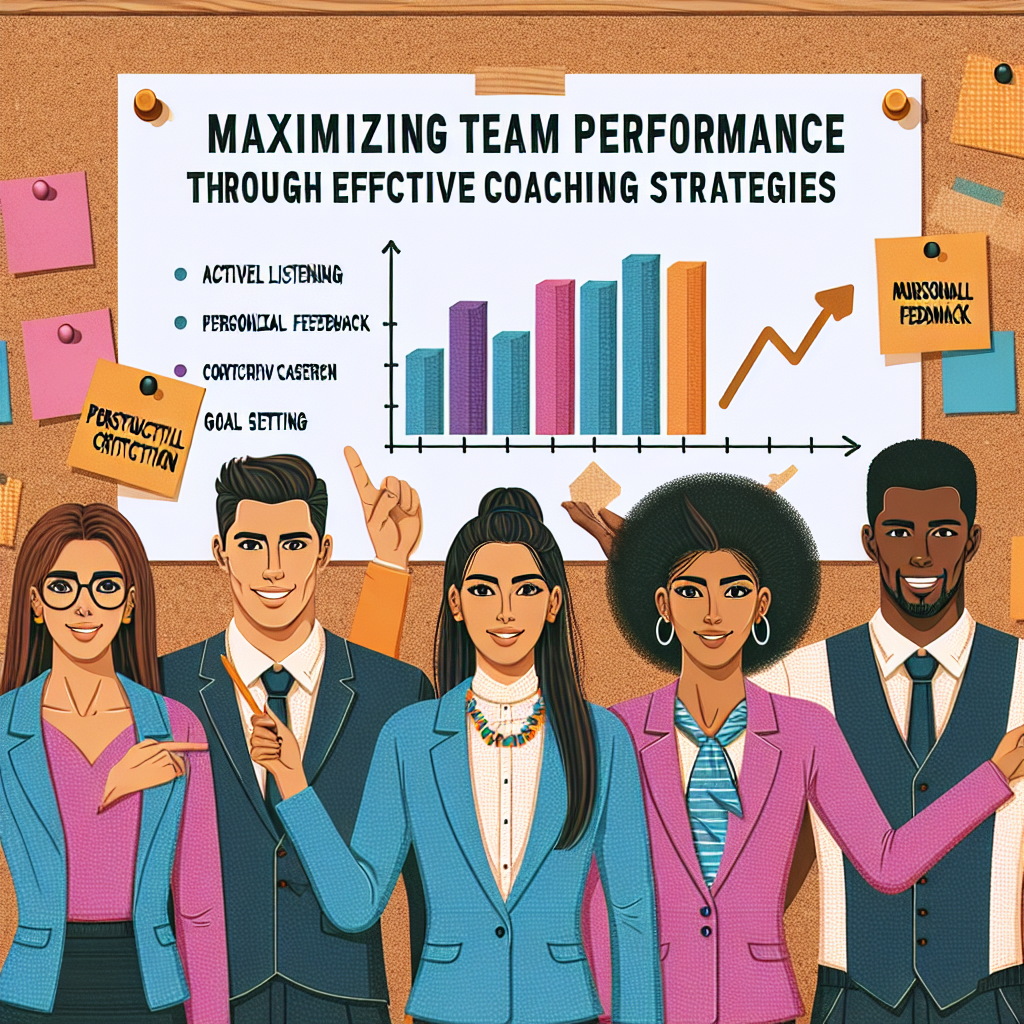Maximizing Team Performance Through Effective Coaching Strategies
In today’s fast-paced business world, organizations are constantly seeking ways to improve performance and achieve their goals. One key factor in achieving success is having a high-performing team that works efficiently and collaboratively towards common objectives. Coaching has become an essential tool in maximizing team performance and helping individuals reach their full potential. By implementing effective coaching strategies, leaders can motivate, inspire, and empower their teams to achieve great results.
The Role of Coaching in Team Performance
Coaching is a process of guiding and supporting individuals to improve their skills, overcome challenges, and achieve their goals. When applied to teams, coaching can help foster collaboration, enhance communication, and align team members towards a common vision. Effective coaching strategies can boost team morale, increase productivity, and drive better results.
Coaching is not about telling people what to do or micromanaging their work. It is about empowering individuals to take ownership of their roles, set meaningful goals, and work towards achieving them. By providing feedback, support, and encouragement, coaches can inspire team members to perform at their best and continuously strive for improvement.
Effective Coaching Strategies for Maximizing Team Performance
There are several key coaching strategies that can help maximize team performance:
1. Build Trust and Rapport: Trust is the foundation of any successful coaching relationship. Coaches must establish a sense of trust and rapport with team members to create a safe and supportive environment for growth and development.
2. Set Clear Expectations: Clear communication is essential in coaching. Coaches must clearly define expectations, goals, and performance standards to ensure team members know what is expected of them and how success will be measured.
3. Provide Feedback: Feedback is a powerful tool for learning and growth. Coaches should provide regular, constructive feedback to help team members identify areas for improvement and make adjustments to their performance.
4. Encourage Self-Reflection: Self-reflection is a valuable skill that can help team members learn from their experiences and make better decisions. Coaches should encourage team members to reflect on their actions, strengths, and areas for development.
5. Support Continuous Learning: Learning is a lifelong process. Coaches should provide opportunities for team members to acquire new skills, knowledge, and perspectives to enhance their performance and achieve their goals.
6. Foster Collaboration: Collaboration is key to team success. Coaches should promote a culture of trust, cooperation, and mutual respect to help team members work together effectively towards common objectives.
7. Celebrate Achievements: Recognition and appreciation are essential motivators. Coaches should celebrate team achievements, no matter how small, to boost morale, build confidence, and inspire continued success.
FAQs
Q: How can coaching benefit team performance?
A: Coaching can benefit team performance by improving communication, fostering collaboration, increasing motivation, and empowering team members to reach their full potential. By providing guidance, support, and feedback, coaches can help teams work more effectively towards common goals and achieve better results.
Q: What skills are important for effective coaching?
A: Effective coaching requires a range of skills, including active listening, empathy, communication, problem-solving, and emotional intelligence. Coaches must be able to build trust, provide feedback, and support individuals in achieving their goals.
Q: How can leaders develop their coaching skills?
A: Leaders can develop their coaching skills by seeking training and certification in coaching, studying best practices, seeking feedback from peers and team members, and practicing coaching techniques in real-world situations. Continual learning and self-improvement are essential for becoming an effective coach.
Q: What are common challenges in coaching teams?
A: Common challenges in coaching teams include resistance to change, lack of trust, communication barriers, conflicting goals, and negative attitudes. Coaches must be able to address these challenges to help teams work together effectively and reach their full potential.
In conclusion, effective coaching strategies are essential for maximizing team performance and achieving organizational success. By building trust, setting clear expectations, providing feedback, fostering collaboration, and supporting continuous learning, coaches can empower their teams to perform at their best and achieve great results. With the right coaching approach, leaders can inspire and motivate their teams to reach new heights of success.





Leave A Comment